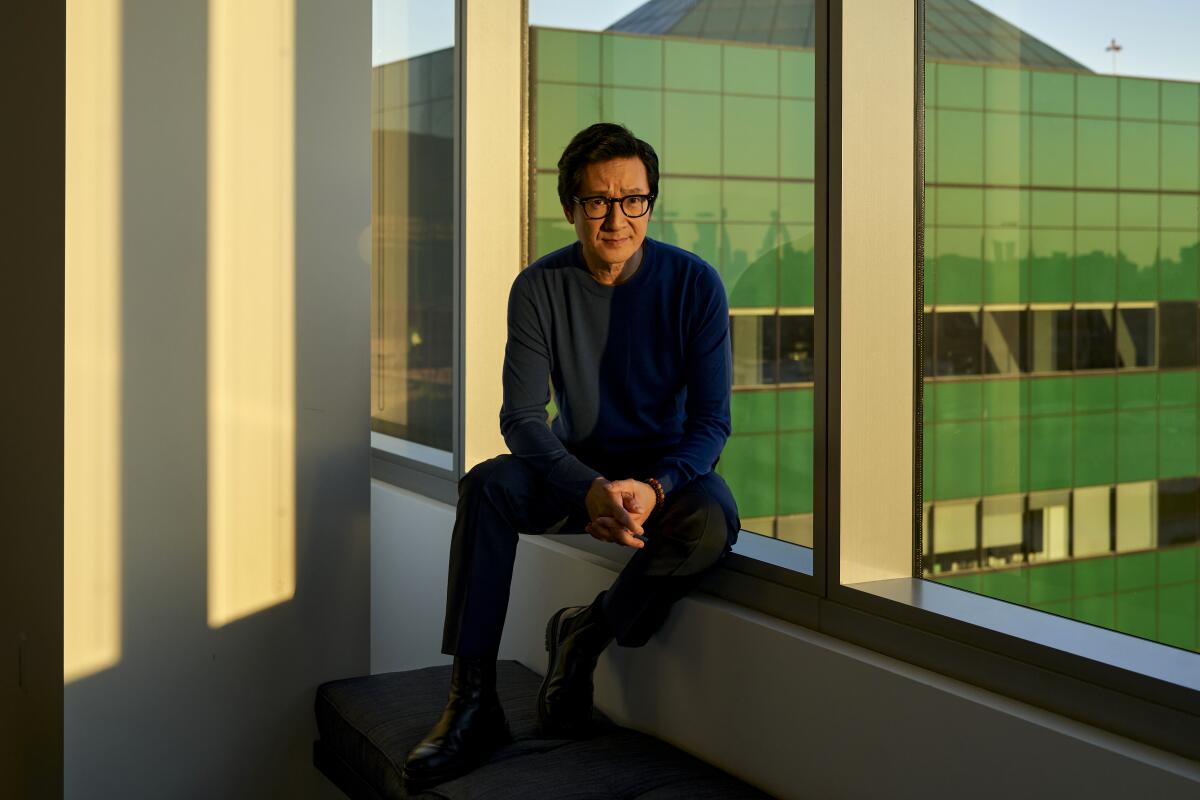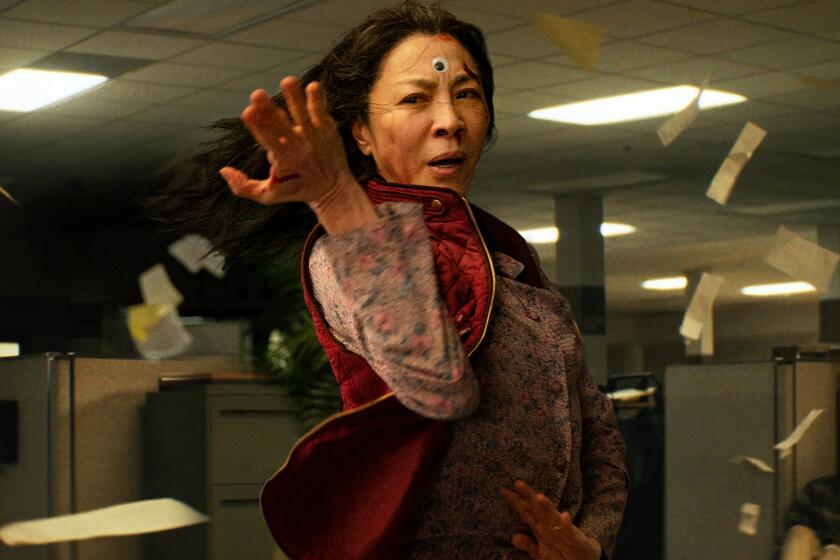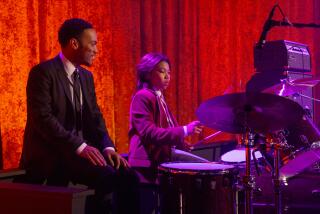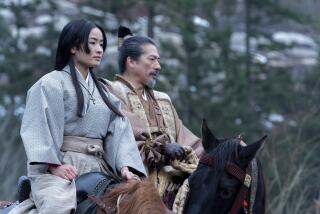With a comeback like no other, Ke Huy Quan can again embrace his dream of acting

F. Scott Fitzgerald famously said there are no second acts in American lives, but he’d never met Ke Huy Quan, who hit big at 12, landing his first film role in 1984’s “Indiana Jones and the Temple of Doom” as Indy’s little pal Short Round. A year later, he was one of the lovable misfits in the classic adventure story “The Goonies.” But the roles soon dried up and he shifted into stunt coordination.
Then came that fabled second act. Quan, a Vietnam-born American immigrant with Chinese parentage, took a second stab at acting and two weeks after finding a new agent landed the key role of Waymond in the mind-bending “Everything Everywhere All at Once,” directed by Daniel Kwan and Daniel Scheinert (known professionally as the Daniels). Up next, he co-stars in “American Born Chinese” for Disney+.
Over tea and fries in New York City, Quan, now 51, spoke with The Envelope about second chances, luck and how Hollywood is now making room for Asian actors.
Has the success of “Everything” really bowled you over?
I’ve had people from all walks of life come up and say how much they love the movie. What’s incredible is it’s not just a movie about an Asian family anymore, but a beautiful story about this family, and the issues it brings up: disconnect, intergenerational trauma. And it has a beautiful message about being kind.
Did you do all your own stunts in “Everything”?
I did the entire fight sequence — except two shots. I trained for it, I got myself in shape — I wanted it so bad. I remember when [the Daniels] showed me the choreography, they said, “If you don’t feel comfortable doing it, we can have the stunt guy do it.” And I said, “No stunt guys, I want to do everything.”
Everything, everywhere all at once.
Exactly.
That’s so corny. Sorry for even saying that.
No, I say it all the time! It fits.
What’s it like to be living through your second act as an actor?
The last time the audience saw me on screen, I was a little kid. I didn’t know how the audience would react to seeing that child actor, now as a middle-aged man. I was 50 years old when I decided to get back into acting, and it wasn’t a decision I made lightly. It took courage to give voice to this dream I’d had, a dream I had to walk away from, and I didn’t think it would find its way back.
Over the years, as you saw the way other actors, including many Asians, were rising in importance in the industry — was there ever a part of you that was jealous?
Absolutely. Landing Short Round in “Temple of Doom” was momentous. I thought the road moving forward would be easy. Boy, was I wrong. Then, being an Asian actor in the late 1980s and early 1990s was even more difficult. The sad thing was I didn’t know my acting career had an expiration date before I was ready to quit. Then, things were shifting for representation and seeing more Asian actors getting opportunities — and not just the small breadcrumbs or marginalized stereotypical roles, but roles that were meaningful… I was happy, but I also wished I was up there, doing that.
Daniels, the directors of ‘Everything Everywhere All at Once,’ reveal the inspirations behind the wildest ideas in their maximalist action movie.
Not that you’re not talented, but do you feel lucky?
Every day. I didn’t go looking to be an actor; acting found me. To work with Steven Spielberg, George Lucas and Harrison Ford on your first movie…. There was nowhere to go but downhill. I think that’s why, when I got older and the road became rugged, I felt like I didn’t pay my dues. I started questioning myself when the phone stopped ringing and the opportunities dried up.
Are you still in touch with Spielberg? Ford?
Steven Spielberg sends me a Christmas present every year, and I was able to see him during the pandemic. We’d get together and have, like, a “Goonies” reunion. I hadn’t seen Harrison Ford for 38 years until recently at the D23 Expo. The last time I’d seen him, I was a little kid. The minute he saw me, he raised his finger to point and I thought he was going to say, “Don’t you get near me.” Instead, he says, “Are you Short Round?” and immediately I was transported to 1984. I said, “Yes, Indy,” and he pulled me close and gave me a big hug.
Legally, your name is Jonathan, right? But you go by Ke. Is that a recent development?
I went by Jonathan for many years. My manager had suggested that maybe it would be easier to have an American name. I was willing to do anything to make it easy, to get more opportunities. But when I decided to get back into acting, the first thing I wanted was to go back to my birth name. With that name comes my heritage, my family and history.
How has Hollywood changed in terms of roles for Asians since you started?
I was so grateful to Spielberg and Lucas, because they were really the first filmmakers to put an Asian face in a big movie [like “Temple”]. But the reason I got so discouraged was every time there was an opportunity to audition — not an offer, but an opportunity — it was always for minor roles. Very stereotypical, marginalized.
Now we have shows on prime-time television with an entire Asian cast, and there’s “Everything Everywhere All at Once.”
For many years, I just had to be realistic. Now, I don’t have to be only realistic. I can also be optimistic.
More to Read
From the Oscars to the Emmys.
Get the Envelope newsletter for exclusive awards season coverage, behind-the-scenes stories from the Envelope podcast and columnist Glenn Whipp’s must-read analysis.
You may occasionally receive promotional content from the Los Angeles Times.











